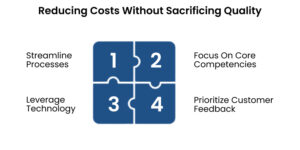
Communication is the lifeline of every business. Whether dealing with clients, managing internal collaboration, or supporting remote employees, the quality and flexibility of communication tools can make or break productivity. Traditional phone systems, while reliable in their time, now struggle to keep up with the demands of a digital-first business environment. This is where Voice over Internet Protocol (VoIP) comes into play. By leveraging internet connectivity instead of traditional phone lines, VoIP has revolutionized how organizations communicate, offering cost savings, scalability, and powerful features.
The Evolution from Landlines to VoIP

For decades, businesses relied heavily on landline-based telephone systems to manage communication. These setups often required extensive wiring, physical hardware, and ongoing maintenance contracts. While dependable, they lacked flexibility and became costly to manage for businesses with multiple offices or remote teams.
The rise of digital technologies created a shift toward more agile solutions. Companies realized that their communication infrastructure had to adapt to modern expectations of mobility and integration with cloud-based tools. This is where VoIP solutions stepped in, providing a cost-effective, reliable, and scalable alternative to outdated systems. By routing calls through the internet, businesses can bypass many of the limitations associated with landlines and gain access to advanced features once available only to large enterprises.
Cost Savings and Budget Efficiency
One of the most attractive aspects of VoIP for businesses is the potential for significant cost savings. Traditional phone systems often come with high installation fees, ongoing maintenance, and costly long-distance charges. VoIP typically requires less hardware, has lower monthly fees, and drastically reduces the expense of international calls.
Subscription-based pricing models allow businesses to choose packages that suit their exact needs, avoiding unnecessary expenses for unused features. For startups and small businesses with limited budgets, these savings can free up capital for other growth initiatives. The reduced overhead can amount to thousands of dollars in annual savings, making VoIP a smart financial choice as well as a functional one.
Flexibility and Mobility in Communication

Today’s workforce is no longer confined to a single office. Remote and hybrid work models have become standard across industries. VoIP technology allows employees to connect from virtually anywhere with internet access, whether they’re working from home, travelling, or stationed in another country.
With softphone apps, team members can make and receive calls directly from their laptops or mobile devices. Voicemail can be transcribed and sent via email, and video conferencing can be seamlessly integrated into the same platform. This level of mobility ensures that communication is never disrupted, regardless of location, keeping teams aligned and responsive.
Advanced Features That Support Business Needs
Beyond basic calling, VoIP platforms offer a host of advanced features that enhance both internal and external communication. Call forwarding, auto-attendants, voicemail-to-email, and integration with customer relationship management (CRM) systems are just a few of the powerful tools available.
These features allow businesses to present a more professional image to clients while streamlining workflows internally. Auto-attendants ensure that callers are always directed to the right department without delay, while integration with CRMs allows customer service agents to access client history instantly, improving support quality. Such capabilities give businesses a competitive edge in delivering exceptional customer experiences.
Integration with Business Tools and Systems
Another significant advantage of VoIP is its ability to integrate with existing digital tools. Many VoIP platforms seamlessly connect with project management software, email systems, and collaboration platforms like Slack or Microsoft Teams. This integration reduces the need to juggle multiple systems and enables a more unified communication experience.
Sales teams can dial prospects directly from their CRM dashboard, while support teams can access call recordings and notes within ticketing systems. These integrations save time, reduce errors, and create a more connected workflow across departments.
Scalability That Grows with the Business
Scalability is often a challenge with traditional phone systems. Adding new lines or extensions can be expensive and time-consuming, requiring physical installations and infrastructure upgrades. VoIP, however, is inherently scalable. Adding new users is often as simple as adjusting a subscription or setting up a new account on the platform.
This flexibility makes VoIP ideal for growing businesses. Whether hiring seasonal employees, opening new locations, or scaling back during slower periods, companies can adjust their communication systems quickly and affordably. This level of adaptability ensures that the communication infrastructure never becomes a barrier to growth.
Security and Reliability Considerations

With any internet-based service, security and reliability are critical concerns. VoIP providers recognize this and invest heavily in encryption, authentication protocols, and redundant systems to ensure safe and consistent communication. Many providers offer disaster recovery features, ensuring that communication can continue even if a physical office is compromised by power outages or natural disasters.
Regular updates and cloud-based infrastructure further enhance reliability. Businesses can rest assured that their systems are protected against evolving threats while maintaining uptime that rivals or surpasses traditional telephony systems.
Improving Customer Experience Through VoIP
Customer satisfaction often hinges on how quickly and effectively businesses can communicate. VoIP enables companies to enhance the customer experience by reducing wait times, providing more personalized service, and ensuring that clients always reach the right person.
Features like call queuing, interactive voice response (IVR), and detailed call analytics give businesses the ability to handle large call volumes efficiently while maintaining a human touch. This ensures that customers leave interactions feeling valued and supported, ultimately fostering loyalty and repeat business.
The Future of VoIP in Business Communication

VoIP adoption continues to accelerate as businesses recognize its value in a digital-first world. With the rise of artificial intelligence (AI), machine learning, and automation, the future of VoIP looks even more promising. Intelligent call routing, predictive analytics, and real-time translation are just some of the innovations on the horizon.
As these advancements become mainstream, VoIP will further transform from a communication tool into a strategic asset that drives efficiency, enhances customer relationships, and supports global business expansion. For companies looking to stay competitive, adopting VoIP is no longer optional, it’s crucial.
The shift from traditional landlines to VoIP reflects the broader transformation of business in the digital age. By offering cost savings, mobility, scalability, and advanced features, VoIP provides organizations with the tools needed to succeed in an increasingly connected world. Businesses that adopt this technology position themselves for greater efficiency, improved customer satisfaction, and long-term growth. In short, VoIP isn’t just about smarter communication, it’s about creating a foundation for smarter business.






